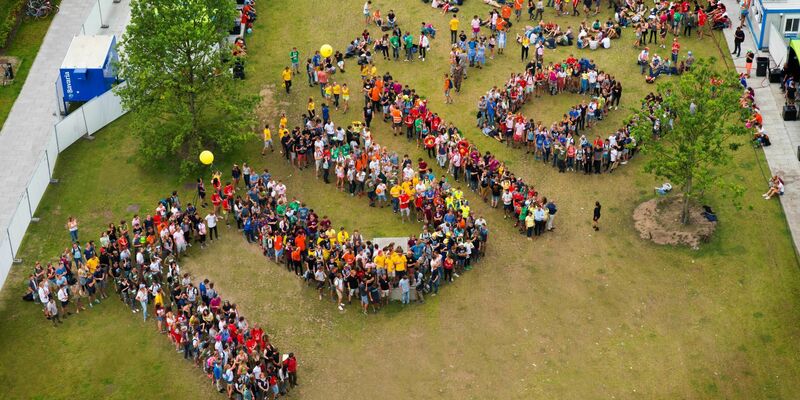UR | Exchanging value
Our university offers plenty of opportunities to participate in extracurricular activities. There are many different ways of developing yourself outside the classroom. In fact, it’s one of the ways in which we distinguish ourselves as a university.
Every year, the number of ways to develop yourself alongside your studies grows. Unfortunately, the number of students who are active within associations and student teams fails to grow along with this upward trend. Many associations are struggling to fill committees and teams. Why is that?
Ever since I became actively involved in the University Council, I’ve come to appreciate the value of our associations and teams even more strongly. The main goal is for these organizations to be for and by students. Without the boards of study, cultural and sports associations we would never have such a close and vibrant community. The student teams help each other to achieve certain goals in even faster, more innovative and pioneering ways. Boards of study associations and cultural associations inspire each other to create an even closer collective. The synergy that arises from this cooperation drives us all forward. It makes TU/e an exciting place to be.
And spending a year or any period of time at an association or student team is so valuable. You develop your skills on both a personal and professional level. You learn things you could never learn or encounter in a lecture hall. Armed with plenty of intrinsic motivation and a little impetuousness, board members are able to independently solve problems. Sometimes you may find yourself out of your depth and you will have to find your own way out. That’s what makes it such a useful experience: being able to make mistakes in a safe environment and then learn from them. These are the skills a student needs to tackle the challenges of the future.
However, there is another side to this story. The opportunity to gain extra-curricular experience is not equally accessible to everyone. Think, for example, of the expectations placed on a student by their environment: friends and family. For some, being able to make this financial investment and time commitment is a privilege. Don’t we want to give every student the opportunity for personal development at our university, outside of their studies? Shouldn’t we lower the (perceived) threshold?
Appreciation and recognition of this extra-curricular development plays an important role in this regard. But what should be the basis of this outreach? This raises a more fundamental question. Do we judge a student’s educational success by the degree they’re awarded, or should we instead be more concerned with student success? The latter involves a greater focus on a student’s development rather than the number of courses completed.
And once a student has decided to rise to the challenge, there are many benefits, including the recognition and appreciation that comes with it. Just think of the testimonials awarded in addition to degrees, something that may be considered an endorsement of their commitment to a board or student team. They personally consider their involvement in MomenTUm as a token of appreciation. The same is true for the special course available to boards and members of student teams since September, and all the facilities offered by Innovation Space by way of support. These are benefits we want every student to enjoy. However, the aforementioned threshold is often still too high. This is perhaps one of the reasons why it is so difficult to fill boards and teams.
How can we make it easier for students to overcome this hurdle? Shouldn’t we be asking some critical questions, such as: why do associations still have to fight for space in university buildings; why do we charge full tuition to students who are not actively attending classes; why does recruitment of new boards and student teams have to happen behind the scenes? These associations and teams add a lot of value to the university; they deserve some value in return.

Discussion